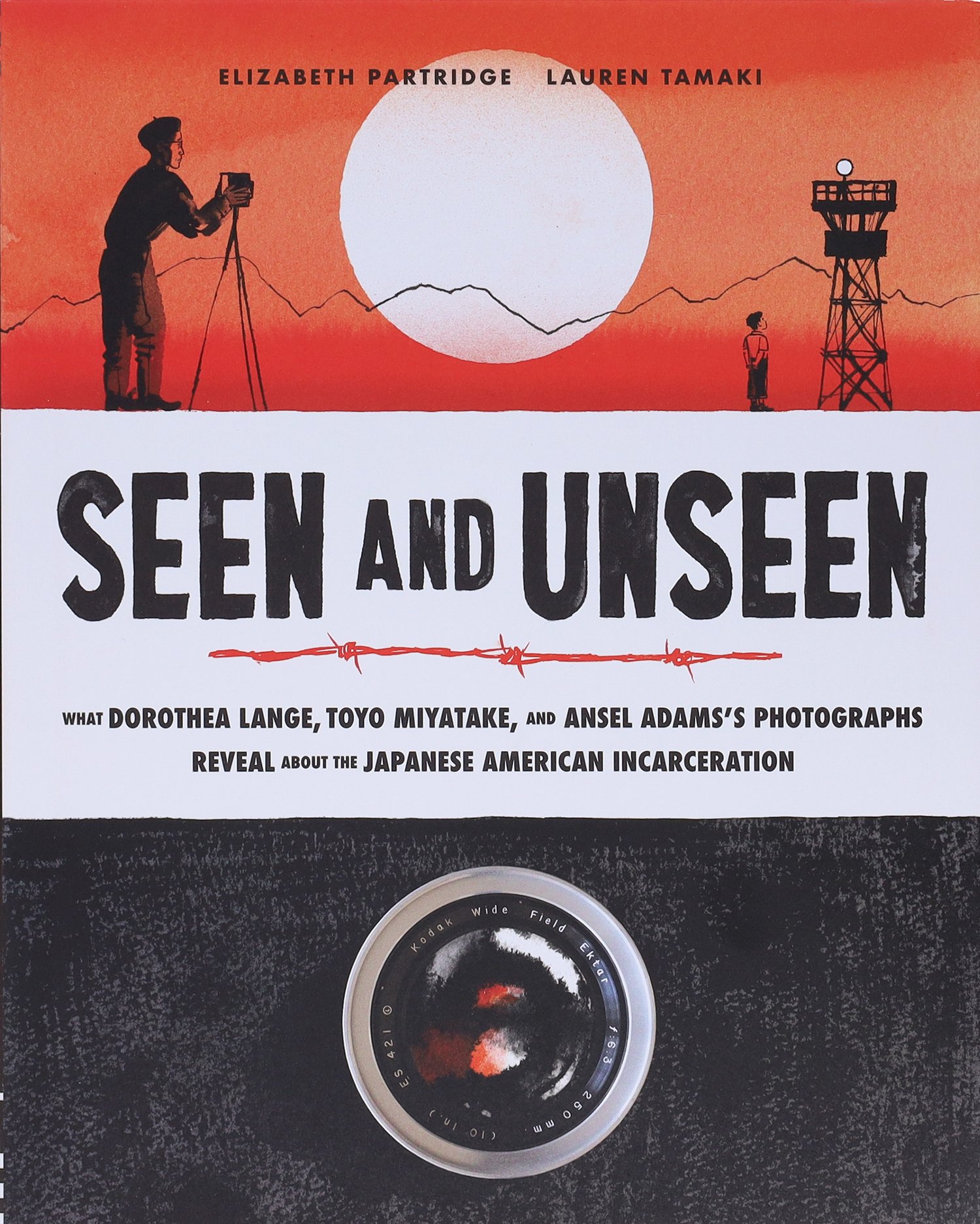2018 School Spending Survey Report
Seen and Unseen: What Dorothea Lange, Toyo Miyatake, and Ansel Adams’s Photographs Reveal About the Japanese American Incarceration
Chronicle.
Oct. 2022.
132p.
Tr $21.99. ISBN 9781452165103.
COPY ISBN
 Gr 5 Up–Art reflects the harsh realities of life in this emotional look at the World War II incarceration of Japanese Americans, filtered through the lenses of three very different photographers. After the attack on Pearl Harbor, President Franklin D. Roosevelt signed Executive Order 9066, which forcibly relocated all Japanese immigrants and their descendants, many who were American citizens, into concentration camps. The War Relocation Authority commissioned photographer Dorothea Lange to capture images of the internment to prove the process was being done ethically. Lange, who opposed the fear-mongering endeavor, instead used her camera to show the absurdity of calling these average Americans “threats.” Toyo Miyatake, himself a Manzanar prisoner, used a secretly constructed camera to take candid shots of the bleak facilities, but also of the supportive community that surrounded him. Ansel Adams had not opposed the incarceration, but by the end of the war felt that loyal citizens should be welcomed back to society. Adams used carefully posed portraits to show exactly what Lange’s work initially underscored—how ridiculous it was to suggest a child or grandfather was a dangerous spy. In stark contrast to the heartbreaking subject matter, Tamaki’s gorgeous black, white, and red illustrations work in tandem with Lange, Miyatake, and Adams’s photographs to paint a devastatingly beautiful picture of both the injustice of the incarceration and the right to humane treatment, which they were denied. Coupled with Partridge’s simple, perfect writing and back matter that deepens the text, this is a work that will haunt readers.
Gr 5 Up–Art reflects the harsh realities of life in this emotional look at the World War II incarceration of Japanese Americans, filtered through the lenses of three very different photographers. After the attack on Pearl Harbor, President Franklin D. Roosevelt signed Executive Order 9066, which forcibly relocated all Japanese immigrants and their descendants, many who were American citizens, into concentration camps. The War Relocation Authority commissioned photographer Dorothea Lange to capture images of the internment to prove the process was being done ethically. Lange, who opposed the fear-mongering endeavor, instead used her camera to show the absurdity of calling these average Americans “threats.” Toyo Miyatake, himself a Manzanar prisoner, used a secretly constructed camera to take candid shots of the bleak facilities, but also of the supportive community that surrounded him. Ansel Adams had not opposed the incarceration, but by the end of the war felt that loyal citizens should be welcomed back to society. Adams used carefully posed portraits to show exactly what Lange’s work initially underscored—how ridiculous it was to suggest a child or grandfather was a dangerous spy. In stark contrast to the heartbreaking subject matter, Tamaki’s gorgeous black, white, and red illustrations work in tandem with Lange, Miyatake, and Adams’s photographs to paint a devastatingly beautiful picture of both the injustice of the incarceration and the right to humane treatment, which they were denied. Coupled with Partridge’s simple, perfect writing and back matter that deepens the text, this is a work that will haunt readers.
VERDICT An essential first purchase.
RELATED
ALREADY A SUBSCRIBER? LOG IN
We are currently offering this content for free. Sign up now to activate your personal profile, where you can save articles for future viewing





Be the first reader to comment.
Comment Policy:
Comment should not be empty !!!